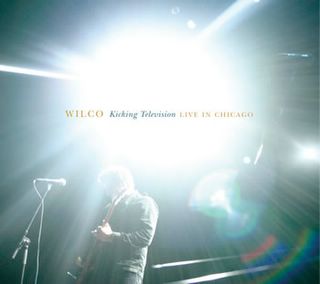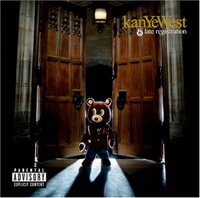 Kanye West
Kanye West -
Late Registration (
Roc-A-Fella) : The stakes got higher as the Chicago south sider aimed to trump his explosively successful debut album
The College Dropout (2004). Kanye West grabbed the horns of his bull-sized talent and chruned out one of the year's smoothest single with "Gold Digger." Sampling the likes of Ray Charles, Otis Redding and Curtis Mayfield, West once again explored new ground. On perhaps the most pivotal track of the album, the orchestral powered "Gone," West reveals a side to rap that seldom gets shown in the mainstream: imagination.
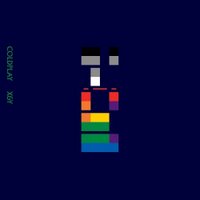 Coldplay
Coldplay -
X & Y (
Capitol) : Coldplay's third album wasn't working for the band in the early stages of recording, so, they cleaned the slate and started fresh. The result was something more than just an album; it was a painting of sounds which widened the scope of Coldplay's world of just a quality band into one of the blossoming greats of our time. The band slightly toys with their sonic textures to create something new yet familiar. By no means does Coldplay tred old water, but songs like "Speed Of Sound" and "Fix You" seem like they were on deck just waiting for their chance at the plate. A hidden track called "Til Kingdom Comes" (written specifically for Johnny Cash to perform before his passing) serves as a fitting end to an album racing towards the next horizon.
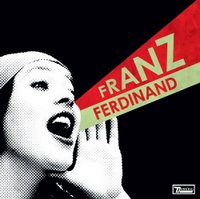 Franz Ferdinand
Franz Ferdinand -
You Could Have It So Much Better (
Sony) : They are the Scottish lads that put dance and style back into rock music and make it look fun again. The quartet add some more depth to themselves and avoid predictability. "Do You Want To" struts like a Las Vegas pimp on any given night, and "The Fallen" makes a nonchalant observation of the human desire to blow up one another ("What's wrong with a little destruction?"). But Franz Ferdinand deliver terrific transitions with "Walk Away" and "Eleanor Put Your Boots On." Here the band steps back for more understated performances that are both whimsical and breezy.
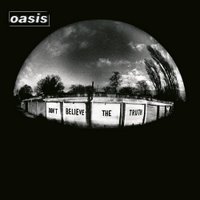 Oasis
Oasis -
Don't Believe The Truth (
Epic) : During a musical campaign that has surpassed ten years, something that critics probably still can't get over, Noel Gallagher has managed to work a little magic from the small corner he and younger brother Liam have gotten Oasis into. No surprises are what listeners have come to expect from Britain's still reigning hit makers. With no original member left in the band other than the Gallaghers, Oasis has carried on while getting an injection of new blood from the likes of Andy Bell (Ride) and Gem Archer (Heavy Stereo). If you look beyond the fact that Ringo Starr's own son, Zak Starkey, gets behind the drum kit--offering a much needed kick--you will hear a band comfortable with resting on their past ("Lyla") while giving in to the idea that trying a new approach isn't so much a bad thing ("The Importance Of Being Idle"). Yet, somehow, Noel and company show off some fire that makes
Don't Believe The Truth more of a whole album rather than a spotty one.
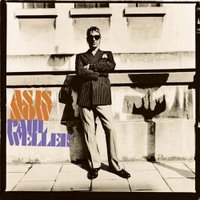 Paul Weller
Paul Weller -
As Is Now (
Yep Roc) : The Modfather continues to get better with age, unafraid to display his softer side and more than eager to squeeze out some blistering guitar solos. Weller delivers his most straightforward rock song since his 1997 album
Heavy Soul called "From The Floor Boards Up." There are no signs of Weller losing his touch throughout the album. On "Here's The Good News," Weller evokes Randy Newman with some saloon-style piano playing. Overall, there's a sense that Weller was going for a no-nonsense production and more for simply capturing the songs in the moment.
As Is Now is quite possibly Weller's most direct solo album to date.
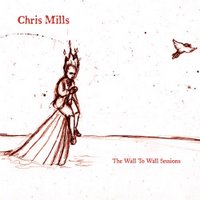 Chris Mills
Chris Mills -
The Wall To Wall Sessions (
Ernest Jenning) : In three days and backed up by a 17-piece band, Chris Mills performed and recorded his fourth album
The Wall To Wall Sessions. The process that Mills put himself through in such a short amount of time was the best decision he could had made at this point of his career. There is an excitement to the album that translates loudly with each song. "You Are My Favorite Song" romances with a smile, "Chris Mills Is Living The Dream" dances in buoyant spirits, and "Dancing On The Head Of A Pin" soothes like the softest of breezes. The heart of this album is its nakedness. Bypassing the trappings of the recording studio has opened new doors for Mills, and it is none more evident than on
The Wall To Wall Sessions.
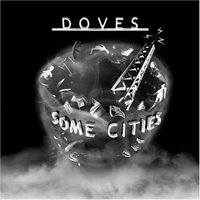 Doves
Doves -
Some Cities (
Capitol) : Since 2000's
Lost Souls and 2002's
The Last Broadcast the Manchester trio called Doves has enjoyed critical acclaim as one of the top acts in the U.K. music scene. What
The Last Broadcast accomplished for the band
Some Cities didn't quite reach--a leap forward. The Doves borrow from their own play book on "Walk In Fire," lifting "There Goes The Fear" (
The Last Broadcast) for the song's overall structure. Even with its back to basics feel
Some Cities still scores with songs like "Black And White Town" and "Ambition." If this is the sound of the Doves as an average band, then the Doves certainly come off as a damn good band with the ability to swith on greatness if they so choose.
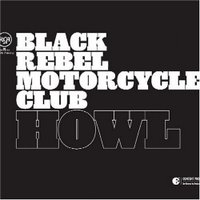 Black Rebel Motorcycle Club
Black Rebel Motorcycle Club -
Howl (
Red Int/Red Ink) : The "acoustic" album happens at some point for any rock band. Just as this is B.R.M.C.'s third album it is also the band's attempt to produce
Led Zeppelin III. The band sets down the abrasive howl of their previous two albums for more of a relaxed whisper, a bluesy moan. The piano-blanketed "Promise," perhaps the real soul of
Howl, removes itself greatly from the Jesus Lizard-esque touch that has flowed B.R.M.C. As if content with the shadows, B.R.M.C. toys with the moody to create an atmosphere that quietly invites you in rather than rushes into your face. "Ain't No Easy Way" is the lone stomper that pumps with some smoking harmonica play backed by a good ole, down and dirty drum groove.
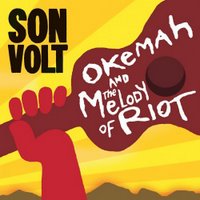 Son Volt
Son Volt -
Okemah and the Melody of Riot (
Sony) : Jay Farrar, singer/songwriter with a voice sometimes bigger than his own band, returns with Son Volt after a seven year hiatus. Although missing the original members of the band, Farrar produces one of the most melodically charged and socially conscious album Son Volt has ever made. "Jet Pilot" and "Endless War" take on the matters surrounding U.S. engagement in Iraq. Farrar seems to revel in the warmth of his electric guitar on "Afterglow 61." It's a rejuvenated vibe for Farrar as he feels out his newly transformed Son Volt. Closing with "World Waits For You," Farrar takes to the piano before the rest of the band enters in for the reprise. The song leaves very little indication on where Son Volt will go next, but, one thing is for certain, Farrar is at his best.
 Star Wars Episode III
Star Wars Episode III -
Revenge of the Sith -
Original Motion Picture Soundtrack (
Sony) : It's the final chapter to a body of music that has spanned over twenty-eight years. John Williams' musical work, not only with the entire
Star Wars saga, has given us some of the most memorable film themes in history. Once again at the helm of the London Symphony Orchestra, Williams charts out his absolute best work for
Episode III - Revenge of the Sith, capturing the tragic transformation of Anakin Skywalker into Darth Vader. The emotions soar in themes like "Battle Of The Heroes" and "Anakin vs. Obi-Wan." Almost as if giving his own personal farewell to George Lucas' galaxy far, far away, Williams revists the most significant
Star Wars themes during the end credit theme "A New Hope." They are classical scores that not only were key to the
Star Wars films but were pieces of music that touched popular culture in ways reminiscent of Mozart. It's a fitting end for a composer that brought the opera to space and beyond.
 Kanye West - Late Registration (Roc-A-Fella) : The stakes got higher as the Chicago south sider aimed to trump his explosively successful debut album The College Dropout (2004). Kanye West grabbed the horns of his bull-sized talent and chruned out one of the year's smoothest single with "Gold Digger." Sampling the likes of Ray Charles, Otis Redding and Curtis Mayfield, West once again explored new ground. On perhaps the most pivotal track of the album, the orchestral powered "Gone," West reveals a side to rap that seldom gets shown in the mainstream: imagination.
Kanye West - Late Registration (Roc-A-Fella) : The stakes got higher as the Chicago south sider aimed to trump his explosively successful debut album The College Dropout (2004). Kanye West grabbed the horns of his bull-sized talent and chruned out one of the year's smoothest single with "Gold Digger." Sampling the likes of Ray Charles, Otis Redding and Curtis Mayfield, West once again explored new ground. On perhaps the most pivotal track of the album, the orchestral powered "Gone," West reveals a side to rap that seldom gets shown in the mainstream: imagination. Coldplay - X & Y (Capitol) : Coldplay's third album wasn't working for the band in the early stages of recording, so, they cleaned the slate and started fresh. The result was something more than just an album; it was a painting of sounds which widened the scope of Coldplay's world of just a quality band into one of the blossoming greats of our time. The band slightly toys with their sonic textures to create something new yet familiar. By no means does Coldplay tred old water, but songs like "Speed Of Sound" and "Fix You" seem like they were on deck just waiting for their chance at the plate. A hidden track called "Til Kingdom Comes" (written specifically for Johnny Cash to perform before his passing) serves as a fitting end to an album racing towards the next horizon.
Coldplay - X & Y (Capitol) : Coldplay's third album wasn't working for the band in the early stages of recording, so, they cleaned the slate and started fresh. The result was something more than just an album; it was a painting of sounds which widened the scope of Coldplay's world of just a quality band into one of the blossoming greats of our time. The band slightly toys with their sonic textures to create something new yet familiar. By no means does Coldplay tred old water, but songs like "Speed Of Sound" and "Fix You" seem like they were on deck just waiting for their chance at the plate. A hidden track called "Til Kingdom Comes" (written specifically for Johnny Cash to perform before his passing) serves as a fitting end to an album racing towards the next horizon. Franz Ferdinand - You Could Have It So Much Better (Sony) : They are the Scottish lads that put dance and style back into rock music and make it look fun again. The quartet add some more depth to themselves and avoid predictability. "Do You Want To" struts like a Las Vegas pimp on any given night, and "The Fallen" makes a nonchalant observation of the human desire to blow up one another ("What's wrong with a little destruction?"). But Franz Ferdinand deliver terrific transitions with "Walk Away" and "Eleanor Put Your Boots On." Here the band steps back for more understated performances that are both whimsical and breezy.
Franz Ferdinand - You Could Have It So Much Better (Sony) : They are the Scottish lads that put dance and style back into rock music and make it look fun again. The quartet add some more depth to themselves and avoid predictability. "Do You Want To" struts like a Las Vegas pimp on any given night, and "The Fallen" makes a nonchalant observation of the human desire to blow up one another ("What's wrong with a little destruction?"). But Franz Ferdinand deliver terrific transitions with "Walk Away" and "Eleanor Put Your Boots On." Here the band steps back for more understated performances that are both whimsical and breezy. Oasis - Don't Believe The Truth (Epic) : During a musical campaign that has surpassed ten years, something that critics probably still can't get over, Noel Gallagher has managed to work a little magic from the small corner he and younger brother Liam have gotten Oasis into. No surprises are what listeners have come to expect from Britain's still reigning hit makers. With no original member left in the band other than the Gallaghers, Oasis has carried on while getting an injection of new blood from the likes of Andy Bell (Ride) and Gem Archer (Heavy Stereo). If you look beyond the fact that Ringo Starr's own son, Zak Starkey, gets behind the drum kit--offering a much needed kick--you will hear a band comfortable with resting on their past ("Lyla") while giving in to the idea that trying a new approach isn't so much a bad thing ("The Importance Of Being Idle"). Yet, somehow, Noel and company show off some fire that makes Don't Believe The Truth more of a whole album rather than a spotty one.
Oasis - Don't Believe The Truth (Epic) : During a musical campaign that has surpassed ten years, something that critics probably still can't get over, Noel Gallagher has managed to work a little magic from the small corner he and younger brother Liam have gotten Oasis into. No surprises are what listeners have come to expect from Britain's still reigning hit makers. With no original member left in the band other than the Gallaghers, Oasis has carried on while getting an injection of new blood from the likes of Andy Bell (Ride) and Gem Archer (Heavy Stereo). If you look beyond the fact that Ringo Starr's own son, Zak Starkey, gets behind the drum kit--offering a much needed kick--you will hear a band comfortable with resting on their past ("Lyla") while giving in to the idea that trying a new approach isn't so much a bad thing ("The Importance Of Being Idle"). Yet, somehow, Noel and company show off some fire that makes Don't Believe The Truth more of a whole album rather than a spotty one. Paul Weller - As Is Now (Yep Roc) : The Modfather continues to get better with age, unafraid to display his softer side and more than eager to squeeze out some blistering guitar solos. Weller delivers his most straightforward rock song since his 1997 album Heavy Soul called "From The Floor Boards Up." There are no signs of Weller losing his touch throughout the album. On "Here's The Good News," Weller evokes Randy Newman with some saloon-style piano playing. Overall, there's a sense that Weller was going for a no-nonsense production and more for simply capturing the songs in the moment. As Is Now is quite possibly Weller's most direct solo album to date.
Paul Weller - As Is Now (Yep Roc) : The Modfather continues to get better with age, unafraid to display his softer side and more than eager to squeeze out some blistering guitar solos. Weller delivers his most straightforward rock song since his 1997 album Heavy Soul called "From The Floor Boards Up." There are no signs of Weller losing his touch throughout the album. On "Here's The Good News," Weller evokes Randy Newman with some saloon-style piano playing. Overall, there's a sense that Weller was going for a no-nonsense production and more for simply capturing the songs in the moment. As Is Now is quite possibly Weller's most direct solo album to date. Chris Mills - The Wall To Wall Sessions (Ernest Jenning) : In three days and backed up by a 17-piece band, Chris Mills performed and recorded his fourth album The Wall To Wall Sessions. The process that Mills put himself through in such a short amount of time was the best decision he could had made at this point of his career. There is an excitement to the album that translates loudly with each song. "You Are My Favorite Song" romances with a smile, "Chris Mills Is Living The Dream" dances in buoyant spirits, and "Dancing On The Head Of A Pin" soothes like the softest of breezes. The heart of this album is its nakedness. Bypassing the trappings of the recording studio has opened new doors for Mills, and it is none more evident than on The Wall To Wall Sessions.
Chris Mills - The Wall To Wall Sessions (Ernest Jenning) : In three days and backed up by a 17-piece band, Chris Mills performed and recorded his fourth album The Wall To Wall Sessions. The process that Mills put himself through in such a short amount of time was the best decision he could had made at this point of his career. There is an excitement to the album that translates loudly with each song. "You Are My Favorite Song" romances with a smile, "Chris Mills Is Living The Dream" dances in buoyant spirits, and "Dancing On The Head Of A Pin" soothes like the softest of breezes. The heart of this album is its nakedness. Bypassing the trappings of the recording studio has opened new doors for Mills, and it is none more evident than on The Wall To Wall Sessions. Doves - Some Cities (Capitol) : Since 2000's Lost Souls and 2002's The Last Broadcast the Manchester trio called Doves has enjoyed critical acclaim as one of the top acts in the U.K. music scene. What The Last Broadcast accomplished for the band Some Cities didn't quite reach--a leap forward. The Doves borrow from their own play book on "Walk In Fire," lifting "There Goes The Fear" (The Last Broadcast) for the song's overall structure. Even with its back to basics feel Some Cities still scores with songs like "Black And White Town" and "Ambition." If this is the sound of the Doves as an average band, then the Doves certainly come off as a damn good band with the ability to swith on greatness if they so choose.
Doves - Some Cities (Capitol) : Since 2000's Lost Souls and 2002's The Last Broadcast the Manchester trio called Doves has enjoyed critical acclaim as one of the top acts in the U.K. music scene. What The Last Broadcast accomplished for the band Some Cities didn't quite reach--a leap forward. The Doves borrow from their own play book on "Walk In Fire," lifting "There Goes The Fear" (The Last Broadcast) for the song's overall structure. Even with its back to basics feel Some Cities still scores with songs like "Black And White Town" and "Ambition." If this is the sound of the Doves as an average band, then the Doves certainly come off as a damn good band with the ability to swith on greatness if they so choose. Black Rebel Motorcycle Club - Howl (Red Int/Red Ink) : The "acoustic" album happens at some point for any rock band. Just as this is B.R.M.C.'s third album it is also the band's attempt to produce Led Zeppelin III. The band sets down the abrasive howl of their previous two albums for more of a relaxed whisper, a bluesy moan. The piano-blanketed "Promise," perhaps the real soul of Howl, removes itself greatly from the Jesus Lizard-esque touch that has flowed B.R.M.C. As if content with the shadows, B.R.M.C. toys with the moody to create an atmosphere that quietly invites you in rather than rushes into your face. "Ain't No Easy Way" is the lone stomper that pumps with some smoking harmonica play backed by a good ole, down and dirty drum groove.
Black Rebel Motorcycle Club - Howl (Red Int/Red Ink) : The "acoustic" album happens at some point for any rock band. Just as this is B.R.M.C.'s third album it is also the band's attempt to produce Led Zeppelin III. The band sets down the abrasive howl of their previous two albums for more of a relaxed whisper, a bluesy moan. The piano-blanketed "Promise," perhaps the real soul of Howl, removes itself greatly from the Jesus Lizard-esque touch that has flowed B.R.M.C. As if content with the shadows, B.R.M.C. toys with the moody to create an atmosphere that quietly invites you in rather than rushes into your face. "Ain't No Easy Way" is the lone stomper that pumps with some smoking harmonica play backed by a good ole, down and dirty drum groove. Son Volt - Okemah and the Melody of Riot (Sony) : Jay Farrar, singer/songwriter with a voice sometimes bigger than his own band, returns with Son Volt after a seven year hiatus. Although missing the original members of the band, Farrar produces one of the most melodically charged and socially conscious album Son Volt has ever made. "Jet Pilot" and "Endless War" take on the matters surrounding U.S. engagement in Iraq. Farrar seems to revel in the warmth of his electric guitar on "Afterglow 61." It's a rejuvenated vibe for Farrar as he feels out his newly transformed Son Volt. Closing with "World Waits For You," Farrar takes to the piano before the rest of the band enters in for the reprise. The song leaves very little indication on where Son Volt will go next, but, one thing is for certain, Farrar is at his best.
Son Volt - Okemah and the Melody of Riot (Sony) : Jay Farrar, singer/songwriter with a voice sometimes bigger than his own band, returns with Son Volt after a seven year hiatus. Although missing the original members of the band, Farrar produces one of the most melodically charged and socially conscious album Son Volt has ever made. "Jet Pilot" and "Endless War" take on the matters surrounding U.S. engagement in Iraq. Farrar seems to revel in the warmth of his electric guitar on "Afterglow 61." It's a rejuvenated vibe for Farrar as he feels out his newly transformed Son Volt. Closing with "World Waits For You," Farrar takes to the piano before the rest of the band enters in for the reprise. The song leaves very little indication on where Son Volt will go next, but, one thing is for certain, Farrar is at his best. Star Wars Episode III - Revenge of the Sith - Original Motion Picture Soundtrack (Sony) : It's the final chapter to a body of music that has spanned over twenty-eight years. John Williams' musical work, not only with the entire Star Wars saga, has given us some of the most memorable film themes in history. Once again at the helm of the London Symphony Orchestra, Williams charts out his absolute best work for Episode III - Revenge of the Sith, capturing the tragic transformation of Anakin Skywalker into Darth Vader. The emotions soar in themes like "Battle Of The Heroes" and "Anakin vs. Obi-Wan." Almost as if giving his own personal farewell to George Lucas' galaxy far, far away, Williams revists the most significant Star Wars themes during the end credit theme "A New Hope." They are classical scores that not only were key to the Star Wars films but were pieces of music that touched popular culture in ways reminiscent of Mozart. It's a fitting end for a composer that brought the opera to space and beyond.
Star Wars Episode III - Revenge of the Sith - Original Motion Picture Soundtrack (Sony) : It's the final chapter to a body of music that has spanned over twenty-eight years. John Williams' musical work, not only with the entire Star Wars saga, has given us some of the most memorable film themes in history. Once again at the helm of the London Symphony Orchestra, Williams charts out his absolute best work for Episode III - Revenge of the Sith, capturing the tragic transformation of Anakin Skywalker into Darth Vader. The emotions soar in themes like "Battle Of The Heroes" and "Anakin vs. Obi-Wan." Almost as if giving his own personal farewell to George Lucas' galaxy far, far away, Williams revists the most significant Star Wars themes during the end credit theme "A New Hope." They are classical scores that not only were key to the Star Wars films but were pieces of music that touched popular culture in ways reminiscent of Mozart. It's a fitting end for a composer that brought the opera to space and beyond.

